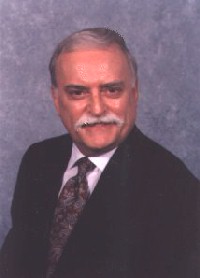
|
| Personal background |
|---|
Mr. Larimore created Community Educational Services Foundation, a non-profit 501(c)(3) publicly-supported community resource, in 1986. CESF is operated entirely by unpaid volunteers.
From its inception, CESF has operated a number of on-line information and communications services for itself and for other organizations, including MAIN - The Maryland AIDS Information Network, for the State of Maryland Department of Public Health; NAPWA-LINK, for the National Association of People With AIDS; GLIB - for the Gay and Lesbian Information Bureau; and ZZAPP!, an affordable community-supported Internet access service.
Currently, income derived from standard subscribers to ZZAPP! Internet Services allows CESF to award via its "One For Ten" program totally free one-year Internet access grants to selected applicants living in the Washington DC Metro area who suffer terminal or long-term chronic illness, or whose extended financial challenges might be alleviated by Internet access.
Mr. Larimore retired from The National Geographic Society in 1996 as Technical Director, Audiovisual Services Division. During his nearly 30 years there, he designed and supervised construction of production and presentation studios, auditoriums, and exhibits, produced National Geographic media publications including the flexible disk records bound into National Geographic documenting man's first footsteps on the moon, and the sub-sonic communications of whales and elephants. His work also included an international folk music series recorded on location, international teleconferencing, lectures and concerts, press conferences, and robotic research via satellite communication. He built from component parts the first general purpose personal computer used by The National Geographic Society.
Prior to his position with National Geographic, Mr. Larimore served with U.S. Army Special Forces - Special Warfare School, Fort Bragg, North Carolina.
CESF Info: http://www.zzapp.org/cesf.htm
ZZAPP! Info: http://www.zzapp.org
|
| Thoughts about SETI and SETI@home |
|---|
"Do you think extraterrestrial life exists?" Of course. Intuitive and scientific logic indicate that it must.
"If so, when and how will humans discover it?" SETI@home is an excellent beginning - other techniques will follow, not the least of which will be direct intellectual communication via technologies not yet imagined.
"What are the possible benefits and dangers of such a discovery?" Obvious benefits include improvements to every aspect of human existence including technology, society, health, philosophy, and the arts. Dangers lurk only in either life form's inability to successfully implement such contact for mutual benefit. Humanity's history indicates that its usual vices of greed, selfishness, envy, avarice, and prejucice might well be major obstacles.
"Should humans transmit a beacon for others to find?" Absolutely.
"If so, what information should we send?" "KISS" (Keep It Simple, Stupid), dictates that we initially transmit only basic connectivity data. Following any successful contact, more complex information exchange would naturally follow.
"Why do you run SETI@home?" Why not? Why doesn't everyone? In this day and age, we need to see beyond our petty selves.
"What are your views about the project?" Whether or not any meaningful contact with ET ever happens, congratulations are in order for expanding human awareness to such possibility.
|
| Your feedback on this profile |
|---|
| Recommend this profile for User of the Day: |
I like this profile |
| Alert administrators to an offensive profile: |
I do not like this profile |
|
| Account data |
View |
| Team |
None |
|

